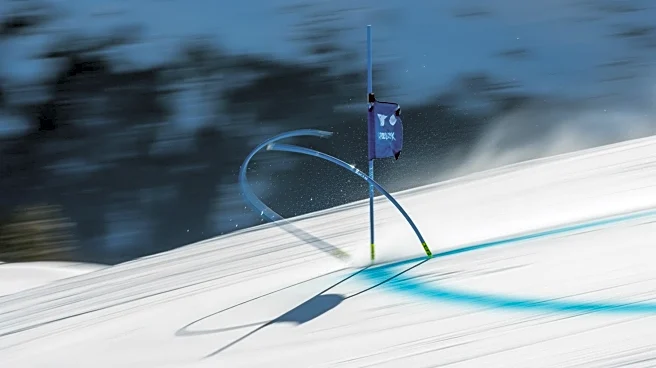Rapid Read • 8 min read
Jonathan Edwards, the world record holder for the triple jump since 1995, has expressed dissatisfaction with the lack of progress in breaking his record. Edwards achieved a distance of 18.29 meters at the World Championships in Gothenburg, a feat that remains unmatched 30 years later. He voiced concerns to BBC Sport, suggesting that the stagnation in record-breaking within jumping events indicates a lack of advancement in athletics. Despite improvements in sports science, nutrition, and training methods, these have not translated into breakthroughs in jumping disciplines. Edwards speculates that ultra-responsive running shoes, which have been banned in some cases for providing excessive advantages, might be hindering performance in events like the triple jump due to the extreme forces involved.
AD
The stagnation in breaking Edwards' record highlights potential issues within the sport of athletics, particularly in jumping events. While technological advancements have led to new records in endurance sports, the same progress has not been seen in jumping disciplines. This raises questions about the effectiveness of current training and equipment technologies in these events. The lack of record-breaking performances could impact the sport's appeal and development, as records often drive interest and investment. Athletes and coaches may need to reassess their approaches to training and equipment to foster progress in these areas.
The athletics community may need to explore new strategies and technologies to overcome the barriers in jumping events. This could involve revisiting equipment regulations, such as the use of carbon fiber plates in shoes, to ensure they do not hinder performance. Additionally, there may be a push for more research into training methods that can better accommodate the extreme forces involved in jumping events. Stakeholders in athletics, including governing bodies and sponsors, might focus on initiatives to stimulate innovation and competitiveness in these disciplines.
The discussion initiated by Edwards could lead to broader conversations about the role of technology in sports and its impact on fairness and competition. As equipment continues to evolve, ethical considerations regarding its use and regulation may become more prominent. The balance between technological enhancement and maintaining the integrity of athletic performance is a critical issue that could shape the future of sports.
AD
More Stories You Might Enjoy










